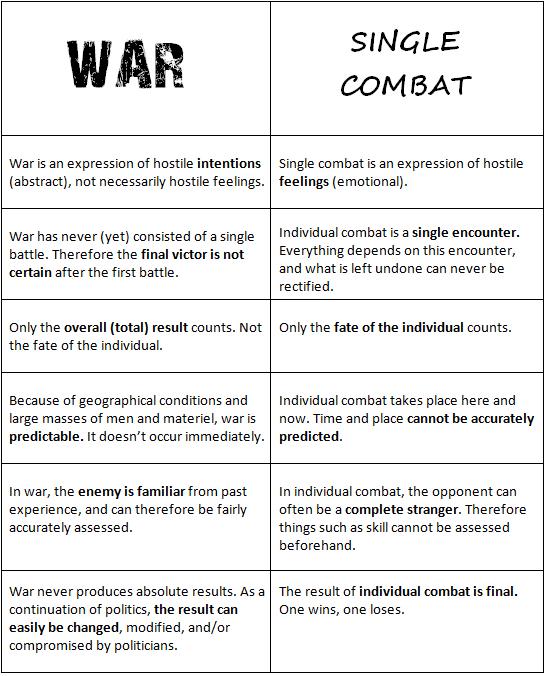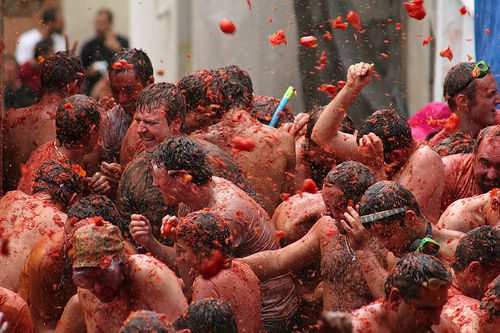Have you read “The Art of War”? You know, that old Chinese military treatise written by Sun Tzu in the 6th century BC?
I bet you have. Or at least parts from it.
The thing with “The Art of War” is that although it is old, it is still very relevant. It is probably the most successful book on military strategy ever written!
Why?
Because it can be applied to many (all?) aspects of life.
People daily use the military strategies from “The Art of War” for business, economics, dating, negotiating, computer games… you name it. You probably use it yourself all the time, without even thinking about it.
Sun Tzu thought that strategy was not about planning (in the sense of working through an established list), but rather quick and appropriate responses to changing conditions. Planning only works in a controlled environment, but in a changing environment, competing plans collide, creating unexpected situations.
And knowing that is important.
By the way, I read a fun story the other day:
There was once an Englishman and a Scotsman who lived next door to each other. The Englishman owned a hen and each morning would look in his garden and pick up one of his hen’s eggs for breakfast.
One day he looked into his garden and saw that the hen had laid an egg in the Scotsman’s garden! He was about to go next door when he saw the Scotsman pick up the egg. The Englishman ran up to the Scotsman and told him that the egg belonged to him, because he owned the hen. The Scotsman disagreed because the egg was laid on his property.
They argued for a while until finally the Englishman said “In my family we normally solve disputes in the following way: I kick you between the legs and time how long it takes you to get back up, then you kick me in the groin and time how long it takes for me to get up. Whoever gets up quicker wins the egg.”
The Scotsman agreed to this and so the Englishman found his heaviest pair of boots and put them on, he took a few steps back, then ran toward the Scotsman and kicked as hard as he could straight into the family jewels. The Scotsman fell to the ground clutching his groin, howling in pain and agony for 30 minutes.
Eventually the Scotsman stood up and said “Now it’s my turn to kick you.”
The Englishman replied “Keep the !%@!# egg.” and ran home.
Now, is that strategy or what? Sun Tzu would be rolling in his grave out of pure joy! “All war is based on deception” right?
But…
Sometimes the strategies of war can’t be applied to all situations. Sure, theoretically most stuff works fine, but not always in reality.
Especially not in single combat and self-defence.
Still… people use strategic military quotes all over the place. They look good. I use them myself.
“Victorious warriors win first and then go to war, while defeated warriors go to war first and then seek to win.” – Sun Tzu, The Art of War
That quote could be used for sport psychology, don’t you think? Or if you are going to hold a presentation, or sell something to a company. Same thinking. No problem here.
So where do I think the problem lies with military strategy when applied to single combat? Well, I made a comparison, after reading a book on the subject.
Here:

Knowing the above facts will be of great benefit when applying military strategies (like the ones found in “The Art of War”) for things like Karate (single combat/self-defence aspects).
However, don’t confuse this with Combat/Martial Sports, like MMA, Taekwondo, Sport Karate…
Those belong to the left side.
Finally, let me conclude with my personal favorite military quote. It is not from Sun Tzu’s “The Art of War” though (it’s not even from Asia). But it’s still a great one:
“A soldier surrounded by enemies, if he is to cut his way out, needs to combine a strong desire for living with a strange carelessness about dying.
He must not merely cling to life, for then he will be a coward, and will not escape. He must not merely wait for death, for then he will be a suicide, and will not escape.
He must seek his life in a spirit of furious indifference to it; he must desire life like water and yet drink death like wine.”
– G.K. Chesterton
Bushido in a nutshell?



2 Comments